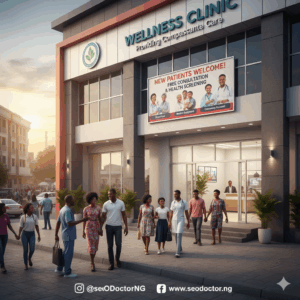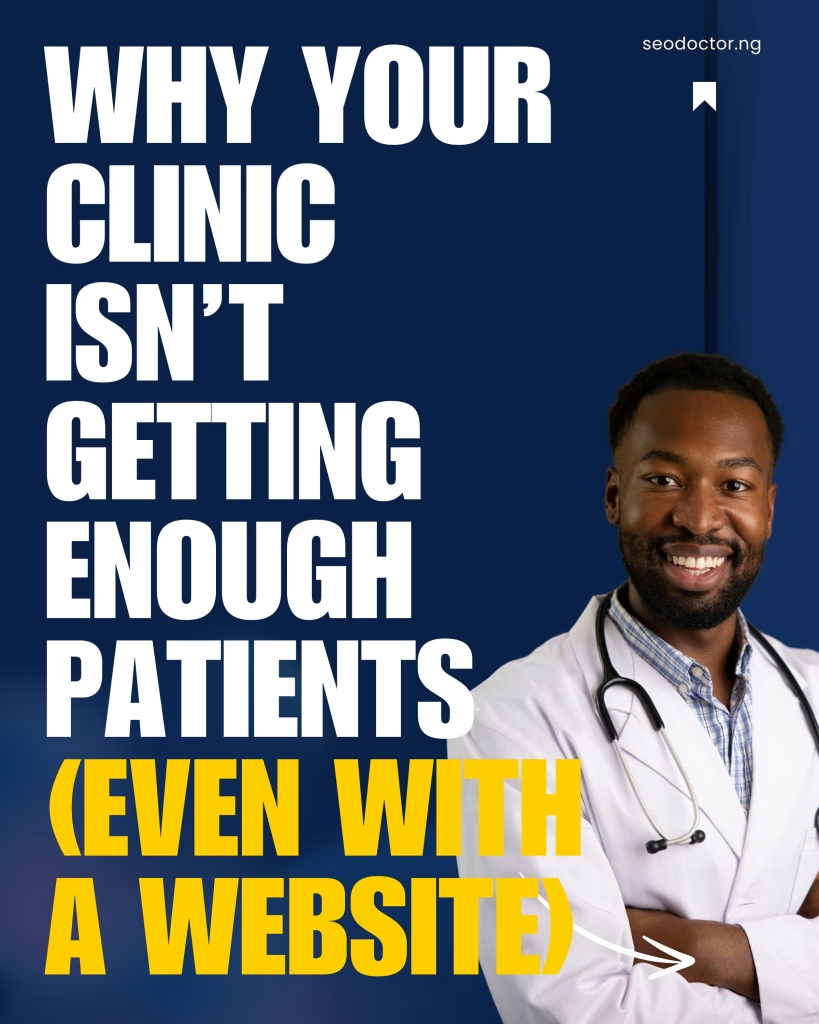Many businesses invest in SEO, expecting instant results. However, unlike paid advertising, SEO is a long-term strategy that requires ongoing optimization and consistent tracking. It’s not just about ranking higher on Google, it’s about driving the right traffic, improving user engagement, and increasing conversions.
One of the biggest challenges businesses face is knowing how to measure SEO success effectively. Without the right data, it’s easy to feel like SEO isn’t working when, in reality, you may not be looking at the right performance indicators.
This article will guide you through how to track SEO progress, the most important metrics to monitor, and the best tools for evaluating SEO performance. By the end, you’ll have a clear roadmap to ensure your SEO efforts deliver measurable results.
1. Why Tracking SEO Performance is Important
SEO is a Long-Term Strategy—Results Don’t Happen Overnight
SEO is not a quick fix. Unlike paid ads, which can bring immediate traffic, SEO takes time to build authority, improve rankings, and drive sustainable results. Depending on competition, industry, and strategy, it can take 4-12 months to see significant improvements.
Without tracking SEO progress, you might abandon effective strategies too soon or fail to identify areas that need improvement.
Without Tracking, You Won’t Know What’s Working and What Needs Improvement
SEO is a combination of technical optimization, keyword strategy, content marketing, and link-building. If you’re not measuring performance, you could be focusing on tactics that aren’t delivering results, while missing opportunities to improve traffic and conversions.
For example:
-
If your rankings are improving but leads remain low, you may be targeting the wrong keywords (e.g., high-volume “informational” keywords instead of “commercial intent” keywords).
-
If you have high traffic but a high bounce rate, your website speed, content, or user experience might need attention.
Tracking SEO allows you to pinpoint weaknesses and optimize accordingly.
Tracking SEO Allows You to Adjust Strategies Based on Data, Not Guesswork
Instead of guessing what’s working, tracking SEO enables you to:
-
Identify which keywords bring the most valuable traffic.
-
Optimize underperforming pages to improve rankings.
-
Measure backlink quality and growth.
-
Improve site speed, mobile-friendliness, and user engagement.
-
Justify your SEO budget and demonstrate ROI to stakeholders.
Data-driven SEO decisions help you adapt to Google’s ever-changing algorithms and improve long-term performance.
2. How Do I Track My SEO Progress?
Tracking SEO success requires a systematic approach. The best way to monitor progress is to focus on three core areas:
-
Website Traffic Growth: Are more people visiting your website through search engines?
-
Track organic traffic (visitors who find your site through Google, Bing, etc.).
-
Compare month-over-month and year-over-year traffic trends.
-
-
Keyword Rankings: Are your target keywords ranking higher on Google?
-
Identify which keywords are driving traffic.
-
Monitor ranking improvements for priority search terms.
-
-
Lead Generation & Conversions: Are visitors turning into customers?
-
Measure conversion rates from organic traffic.
-
Track phone calls, form submissions, and purchases resulting from SEO efforts.
-
These three elements provide a clear picture of SEO performance and where you need to focus your efforts.
3. What Metrics Should I Focus On?
SEO success is not just about ranking #1 on Google—it’s about driving the right traffic and increasing conversions. Here are the most important SEO metrics to track:
-
Organic Traffic (Google Analytics): The foundation. A steady increase means your strategy is working.
-
Keyword Rankings (Google Search Console, SEMrush, Ahrefs): Track your position for targeted keywords. Focus on ranking improvements, not just #1 positions.
-
Click-Through Rate (CTR) (Google Search Console): A low CTR means your title tags and meta descriptions need to be more compelling.
-
Bounce Rate & Dwell Time (Google Analytics): A high bounce rate suggests content isn’t engaging or relevant. Aim for longer dwell time, which signals quality to Google.
-
Conversion Rate (Google Analytics, CRM tools): The ultimate measure. How many visitors take action (call, book, subscribe, or buy)?
-
Backlink Quality & Quantity (Ahrefs, Moz, SEMrush): More high-quality, relevant backlinks = better authority and rankings.
-
Core Web Vitals (Google Search Console): A critical modern metric. This measures user experience through loading speed (LCP), interactivity (FID), and visual stability (CLS). Poor scores can hurt rankings.
-
Organic Traffic Value: An advanced but crucial metric. If you paid for this traffic via ads, what would it cost? This helps quantify SEO’s financial value.
4. Setting Up a Practical SEO Reporting Dashboard
You can’t manage what you don’t measure. Instead of getting lost in data, create a simple monthly report dashboard. Here’s what to include:
-
Executive Summary: 2-3 sentences on the biggest wins and challenges.
-
Key Metric Overview:
-
Organic Traffic (vs. previous month & YoY)
-
Top 5 Performing Keywords (and their movement)
-
Total Organic Conversions (and conversion rate)
-
Top 5 Landing Pages by Organic Traffic
-
-
What’s Working: Which pages or keywords drove the most growth?
-
What Needs Improvement: Which pages have high traffic but low conversions? Which keywords dropped?
-
Next Steps: Actionable tasks for the next month (e.g., “Optimize meta description for Page X to improve CTR,” “Create content to target Keyword Y”).
5. What Tools Do You Use to Measure SEO Performance?
To effectively track SEO progress, use a combination of free and paid SEO tools:
-
Free Google Tools (Essential for SEO):
-
Google Analytics: Tracks traffic, user behavior, and conversions.
-
Google Search Console: Monitors rankings, search queries, indexing, and Core Web Vitals.
-
Google My Business Insights: Essential for local SEO tracking.
-
-
Paid SEO Tools (For Advanced Analysis):
-
SEMrush/Ahrefs: For keyword rankings, backlink analysis, content gap analysis, and competitor insights. Ahrefs is often stronger for backlinks, while SEMrush offers a broader feature set.
-
Moz Pro: For domain authority, page optimization suggestions, and site audits.
-
Screaming Frog: The ultimate technical SEO tool for crawling your site to find broken links, slow pages, and missing meta tags.
-
6. Can You Guarantee #1 Rankings on Google?
Short answer: No, and any agency that guarantees #1 rankings is misleading you.
Here’s why:
-
Google’s algorithm changes thousands of times a year, making fixed rankings impossible to guarantee.
-
SEO is a competition. Your rankings depend on what other websites are doing.
-
The goal of SEO is not just ranking #1 but driving relevant, converting traffic.
What Can a Good SEO Strategy Guarantee?
-
More organic traffic
-
Higher Google visibility
-
Improved brand authority
-
More leads & conversions
-
A transparent, data-driven process you can understand.
SEO is about long-term, sustainable growth, not quick fixes or shortcuts.
7. Common SEO Tracking Mistakes to Avoid
-
Only Tracking “Head” Keywords: Don’t ignore long-tail keywords. They often have higher conversion rates and are easier to rank for.
-
Ignoring Local SEO Metrics: If you have a local business, track impressions and clicks in Google Business Profile, and look for “map pack” rankings.
-
Not Setting Up Goals in Analytics: If you don’t tell Google Analytics what a “conversion” is (form submission, phone call, purchase), you can’t track it.
-
Panicking Over Short-Term Drops: Traffic and rankings can fluctuate daily. Look for long-term trends (30-90 days), not day-to-day changes.
-
Not Segmenting Data: Viewing all traffic as one is a mistake. Always segment your data by channel (organic vs. social vs. direct) to get a true picture of SEO performance.
Conclusion: Track SEO Success for Long-Term Growth
Measuring SEO success isn’t just about ranking higher—it’s about driving more qualified traffic, improving engagement, and increasing conversions. By moving beyond vanity metrics and focusing on data that impacts your bottom line, you transform SEO from a cost into a powerful investment.
-
Track key metrics like organic traffic, keyword rankings, conversions, and Core Web Vitals.
-
Use the right tools to measure progress and build a simple reporting dashboard.
-
Adjust strategies based on real data, not assumptions, and avoid common tracking pitfalls.
SEO is a marathon, not a sprint. Track it properly, and you’ll see real, sustainable business growth.
Want a FREE SEO Audit to Measure Your Website’s Performance?
Contact us today for a detailed SEO performance report! We’ll analyze your traffic, rankings, and technical health to create a customized roadmap for growth.
#SEO #MeasuringSEO #GoogleRankings #SEOTracking #DigitalMarketing #SEOAnalytics #MarketingStrategy #ROI #ContentMarketing #WebAnalytics












